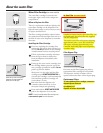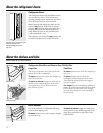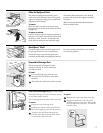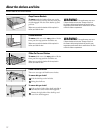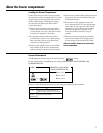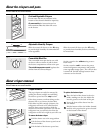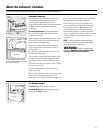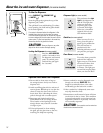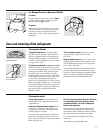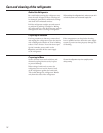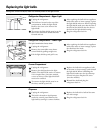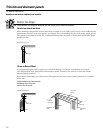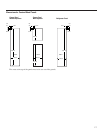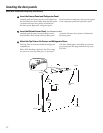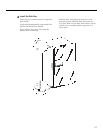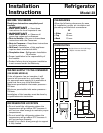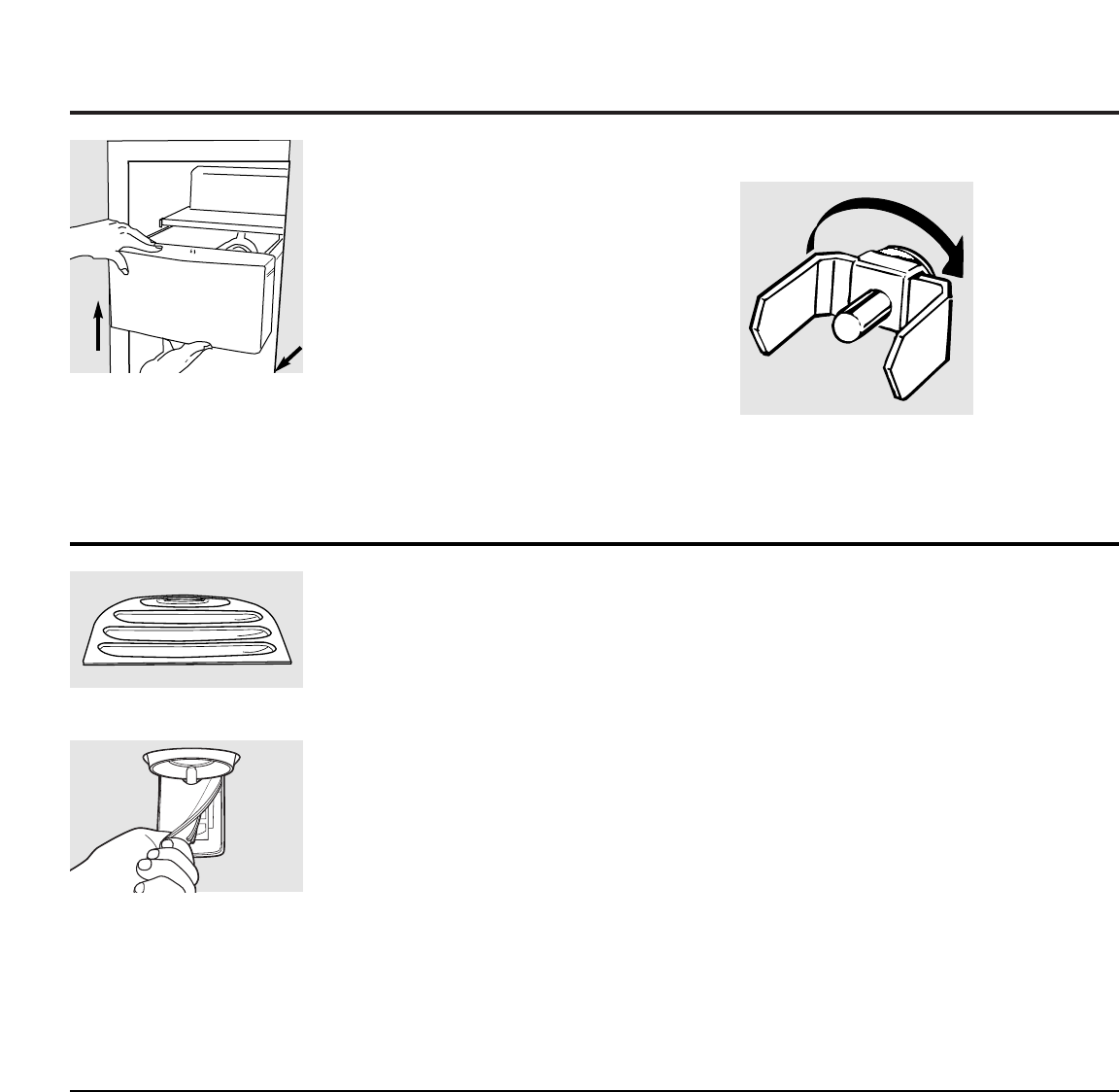
17
Dispenser drip area.
Removing the dispenser pad
(on some models)
Rotate
Drive
Mechanism
Ice Storage Drawer on Dispenser Models
To remove:
Set the icemaker power switch to the O (off)
position. Pull the drawer straight out and
then lift past the stop position.
To replace:
When replacing the drawer, be sure to press
it firmly into place. If it does not go all the
way back, remove it and rotate the drive
mechanism 1/4 turn. Then push the drawer
back again.
Cleaning the Outside
The dispenser drip area, beneath the grille,
should be wiped dry. Water left in this area
may leave deposits. Remove the deposits by
adding undiluted vinegar to the well. Soak
until the deposits disappear or become loose
enough to rinse away.
The dispenser pad/cradle (on dispenser models).
Before cleaning, open the freezer door part
way to prevent dispensing of ice or water when
cleaning. On models with a dispenser pad,
the pad can be removed before cleaning.
Simply peel the pad away from the back wall
of the dispenser. Clean the pad/cradle with
a warm water and baking soda solution—
about 15 ml of baking soda to 1 liter of water.
Rinse thoroughly and wipe dry. To replace the
pad, tuck the edges of the pad in the grooves
on the back wall of the dispenser. Make sure
that the top of the pad goes behind the
dispenser collar.
The door handles and trim. Clean with a cloth
dampened with soapy water. Dry with a
soft cloth.
Keep the outside clean. Wipe with a clean cloth
lightly dampened with kitchen appliance wax
or mild liquid dish detergent. Dry and polish
with a clean, soft cloth.
Do not wipe the refrigerator with a soiled dish cloth or
wet towel. These may leave a residue that can erode
the paint. Do not use scouring pads, powdered cleaners,
bleach or cleaners containing bleach because these
products can scratch and weaken the paint finish.
Care and cleaning of the refrigerator.
Cleaning the Inside
To help prevent odors, leave an open box of
baking soda in the refrigerator and freezer
compartments.
Unplug the refrigerator before cleaning. If this
is not practical, wring excess moisture out
of sponge or cloth when cleaning around
switches, lights or controls.
Use warm water and baking soda solution—
about 15 ml of baking soda to one liter of
water. This both cleans and neutralizes odors.
Rinse and wipe dry.
Use of any cleaning solution other than that which
is recommended, especially those that contain
petroleum distillates, can crack or damage the
interior of the refrigerator.
Avoid cleaning cold glass shelves with hot water
because the extreme temperature difference may
cause them to break. Handle glass shelves carefully.
Bumping tempered glass can cause it to shatter.
Do not wash any plastic refrigerator parts in the
dishwasher.
The chill/thaw tray is dishwasher safe.



